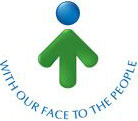Partners
Ministry of Youth and Sport
The Ministry of Youth and Sport is responsible for implementing the national policies in the area of physical education, sport and social tourism.
The Minister of Youth and Sport is the sole authority of the executive branch empowered to develop, organize, coordinate and control the implementation of national policies in these areas.
Article 2, Paragraph 1 of the Regulations on Doping Control in Training and Competition Activities stipulates that “the Anti-Doping Centre with the Minister of Youth and Sport shall be the national-level body for doping control, prevention and fight against doping in sport”.
Bulgarian Olympic Committee
The Bulgarian Olympic Committee is a non-profit organization serving as the National Olympic Committee of Bulgaria and a part of the International Olympic Committee. It was formed on March 30, 1923.
Pursuant to Article 54, Paragraph 1 of the Regulations on Doping Control in Training and Competition Activities, a Disciplinary Commission has been established with the Bulgarian Olympic Committee that:
1. conducts sessions and hears athletes on all matters arising from anti-doping rule violations; 2. determines all matters arising from anti-doping rule violations; 3. determines the type and period of the sanctions for committed anti-doping rule violations.
Furthermore, the national appellate body for decisions made by the Disciplinary Commission in relation to matters arising from anti-doping rule violations – the Bulgarian Sports Arbitration – is also part of the Bulgarian Olympic Committee.
World Anti-Doping Agency (WADA)
The World Anti-Doping Agency (WADA) is the international independent organization created on November 10, 1999 to promote, coordinate and monitor the fight against doping in sport in all its forms at the international level. WADA is composed and funded equally by the Olympic movement and governments of the world. Its key activities include scientific research, education, development of anti-doping capacities and monitoring of the World Anti-Doping Code – the core document that provides the framework for harmonized anti-doping policies, rules and regulations within sport organizations and among public authorities.
Council of Europe
The Council of Europe is an international organization promoting co-operation between all countries of Europe in the areas of legal standards, human rights, democratic development, the rule of law and cultural co-operation. It was founded on May 5, 1949 and is headquartered in Strasbourg, France.
The Anti-Doping Convention of the Council of Europe was opened for signature on December 16, 1989 as the first multilateral legal standard in the field of anti-doping. The Republic of Bulgaria ratified the Convention on April 22, 1992. On February 9, 2005 the Republic of Bulgaria ratified the Additional Protocol to the Anti-Doping Convention.
United Nations Educational, Scientific and Cultural Organization (UNESCO)
The United Nations Educational, Scientific and Cultural Organization Organization (UNESCO) is a specialized agency of the United Nations (UN) founded on November 16, 1945 to encourage the collaboration between nations through education, science and culture.
The International Convention against Doping in Sport is the first global international treaty against doping in sport. The Convention was adopted by the UNESCO General Conference on October 19, 2005. It was ratified by the 40th National Assembly on December 13, 2006 and entered into force for the Republic of Bulgaria on March 1, 2007.







